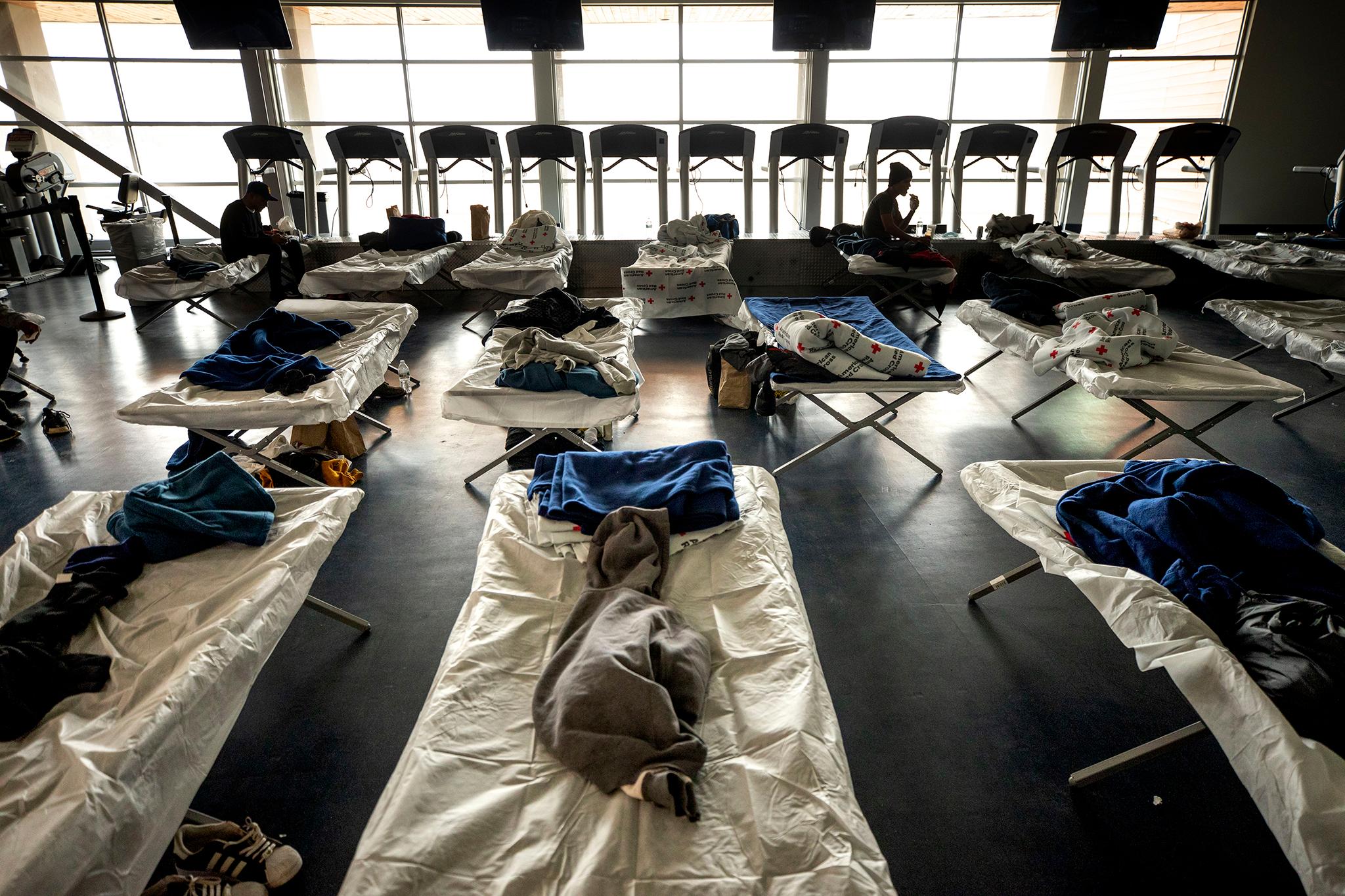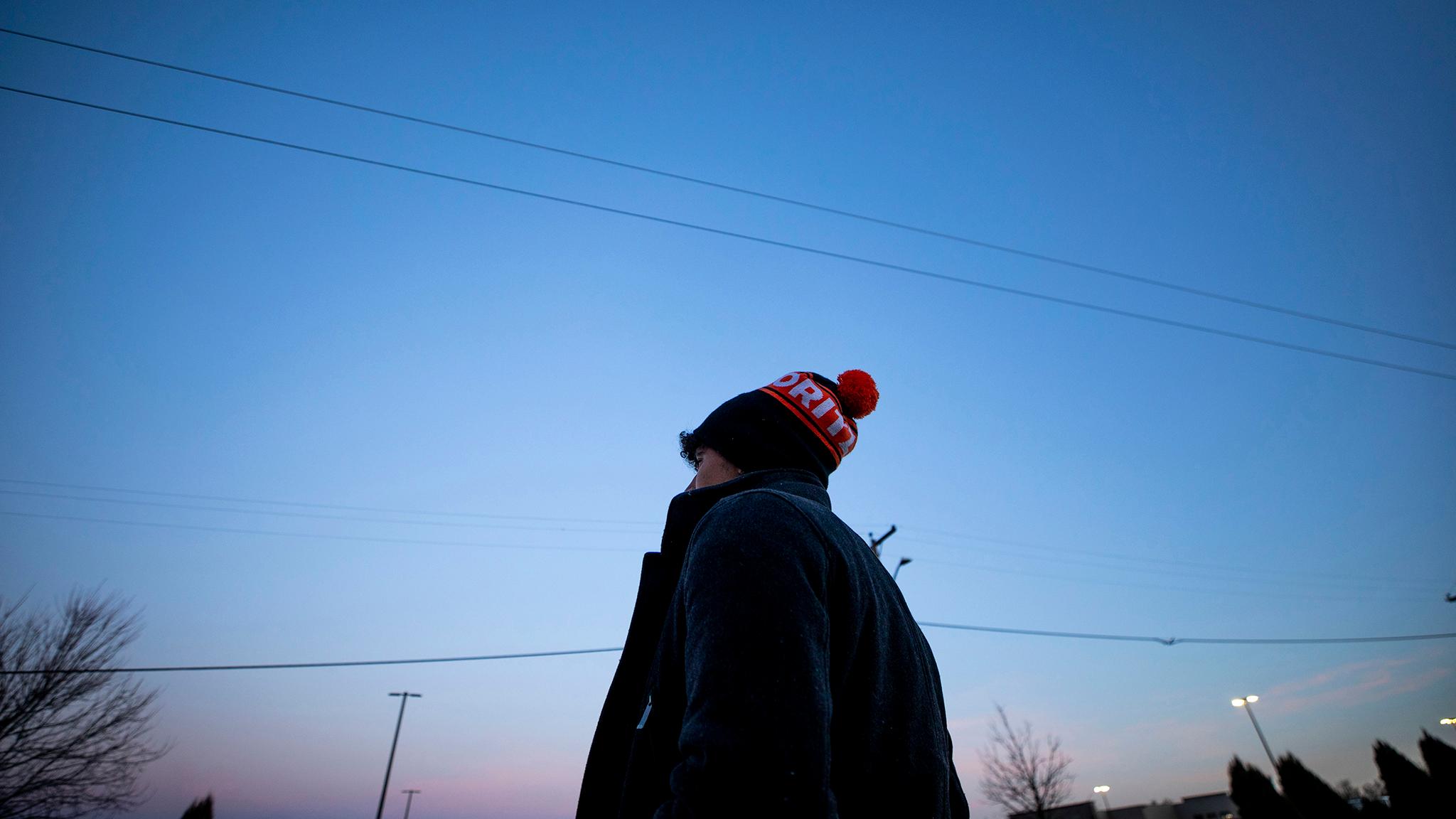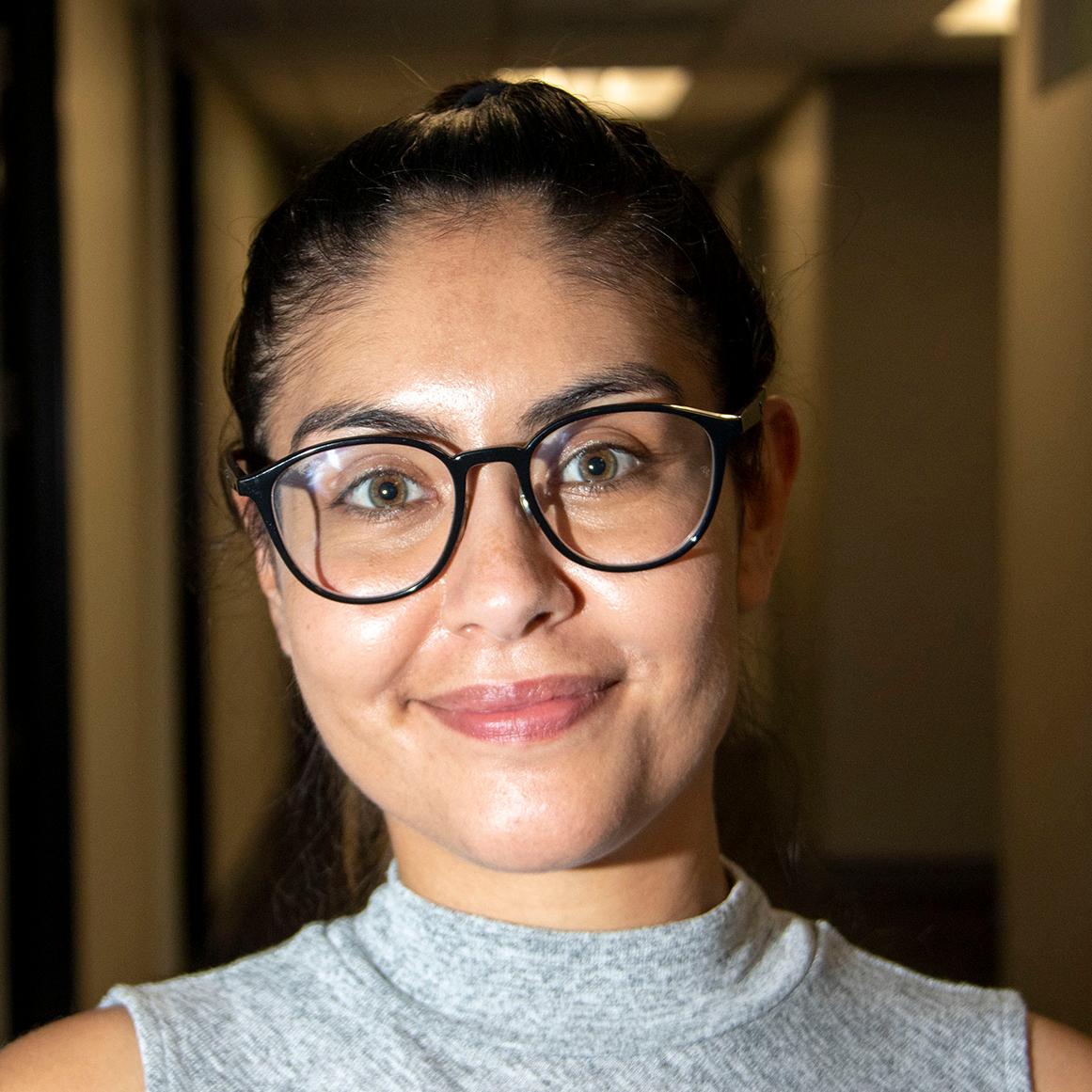Warning: This article contains some graphic or triggering content.
Kevin witnessed horrors on his journey from Venezuela to the United States. In Panama, as he crossed the Darién Gap, he saw people drown, children succumb to hypothermia and travelers become victims of sexual violence and murder at the hands of drug cartels. He was robbed and lost the few extra clothes he brought for the months-long journey. He was freezing when he finally arrived in Denver.
Kevin, who's 22 and declined to tell us his last name, is one of at least 1,500 newly arrived migrants who've been sheltered by the city this month. He's one of millions who've taken dangerous paths through jungles and deserts over the years to ask the U.S. government for asylum, legal and safe passage into the country. But that status is far from a guarantee.
"Imagine traveling with your child, then your child dies and you arrive in the United States only to be deported," he told us in Spanish during a recent visit to a church-run shelter. "You lost your child and you lost your dream. So then it's difficult."
Like so many others, he felt leaving home was worth every risk. But his reasons for coming here may not be good enough to stay under the letter of the law.
America's asylum system was built for a world that no longer exists.
Kevin was a college student once. In oil-rich Venezuela, he studied petroleum engineering but had to drop out as it became too expensive. He worked and saved, but he said Venezuela's failing economy eventually caught up to him.
"Things started worsening and I had to close my business, I had to sell my car," he told us. "Everything ends."
Venezuela has been in a deep recession since 2014. Analysts estimate its gross domestic product has fallen at least 75 percent since then, and a quarter of the country's population has left in that time. Kevin said he saw no future for himself there.
While the situation at home was bad enough to send Kevin north into danger, financial desperation is not enough to access asylum.
"In order to win asylum, you have to show you were persecuted in the past, and that's why you fled, or you fear persecution if you return," Elizabeth Jordan, a visiting assistant professor at the University of Denver's College of Law, told us. "Economic issues, poverty issues, generally are not considered persecution under United States immigration law."
The U.S. did not have a formal asylum process until the 1950s, after Franklin Roosevelt's administration rejected people fleeing Nazi Germany, which condemned some to death in concentration camps.
"So the international community came together after World War II and reached some agreements on the treatment of refugees," Jordan said. "U.S. asylum law was developed as part of that." But the system hasn't changed much since then.

"The reasons people are fleeing today have changed a lot, and our asylum system does not necessarily account for those changes," she added. "The reasons people are legitimately afraid for their lives might not be something that our asylum system understands and approves."
Still, Violeta Chapin, a clinical professor at the University of Colorado Law School, said poverty and violence are often interconnected, especially in a "collapsed" country like Venezuela. People like Kevin may be able to make claims that pass muster with federal immigration officials, but it takes an understanding of the system and, often, a lawyer.
"Some of them may very well be able to fit themselves inside of an asylum framework," she said. "Asylum, it's a very good idea, generally. People like the idea of being able to provide people safe haven. But, you know, our immigration system is a very restrictive one that is set up to make it very difficult for people to lawfully immigrate to the United States."
Immigration courts have long been full of people making claims without much help.
In a regular criminal court, defendants have a right to legal representation and are provided help if they can't afford it on their own. But there is no public defender system in immigration court, which means many people who've stayed in Denver's shelters and plan to ask for asylum will face a judge alone.
Downtown Denver is host to one of the nation's immigration courts. In November, we spent the day in one room and watched as dozens of people filtered in and out of a small array of pews before Judge Donald O'Hare.
O'Hare spoke with patience but was direct, reciting well-worn lines to explain the process. People listened to his interpreted speech as their children fumbled with toys and coloring books.
"You have some important rights in this court. You have a right to be represented by an attorney of your choice but at no cost to the government. This means that I cannot appoint an attorney for you," he said a few times throughout the day. "If you don't think you'll be able to afford to pay for an attorney, there's a free legal service that may be able to assist you."
That free legal service is one person from the Rocky Mountain Immigrant Advocacy Network, or RMIAN, in a nearby office. On this day, it was Emily Brock, who specializes in helping children and worked with as many people as she could. Each time O'Hare asked groups of defendants if they wanted Brock's help, every single person raised their hand.
The trouble, Brock told us, is there are just too few pro bono lawyers to go around. Sometimes she can help an asylum seeker get representation, but she spends more time just helping people understand how they can represent themselves. Most people don't appear before a judge with an attorney, which means they are more likely to lose their cases.
Complicating things is the "dedicated docket," a Biden Administration policy that places families - not individuals - from certain countries on expedited paths to a final verdict. Just seven percent of families on the dedicated docket have been granted asylum since the policy was enacted. Brock said this piece of the system, which some Venezuelans are subject to, sets people up to fail.
"Asylum cases are complicated," she told us. "They involve describing the worst possible moments in your life after you've gone through this horrific trip to get here, and you [the government] want someone to do that quickly and without legal counsel?"
Many people who've arrived in Denver will end up in a court like this as they try to remain in the U.S. permanently. Some, like Kevin, needed to cross the border illegally to make it this far. A person must be in the country to declare asylum, but there are policies in place that have removed legal pathways to enter and make that claim, so people often cross where they can to present themselves to border patrol. Americans who might be upset at this notion do not understand the reality of the situation, Brock said.
"For some people, there are legal ways. But the people who are showing up at our borders, they're not people who have ways other than presenting themselves for asylum. There is no line for them to get into," she told us. "The wait for that final petition could be upwards of 20 years. When you're being threatened by some criminal or government element in your country, and you're trying to save your children, you're not going to be like, 'OK, I'll just wait the 20 years. It's fine.' You're not going to say that. And, by the way, it is perfectly legal for someone to come to our borders and ask for asylum."
People know America's immigration system can be impossible to penetrate. Coming here may still be worth it to them.
We met Johnny, who's 27 and also declined to give his last name, at one of Denver's emergency shelters and took him to a Starbucks to learn more about his situation. He and his friend, Jose Luis, were awestruck by the glowing trees in Central Park's Town Center. They took their coffees with lots of sugar.

Like Kevin, they said they left Venezuela because they saw no life to give their families there. They also saw terrible things on their journey. Johnny, who once served in the Venezuelan military, said he had to work for guerrillas and cartels in each country along the way, since he had no money to pay for safe passage.
"I saw a lot of terror, a lot of rape in Panama ... that was the most terrible thing," he said in Spanish. "Killing and dismembering people for not having $100 in their pocket. That's the most terrifying thing I've been through on this trip. And the most beautiful thing was to come to the United States."
He left in late summer with the goal, like many others, to make it to America by December.

But unlike Kevin, Johnny said he had no plans to stay here. He left his family in Colombia where they relocated a few years ago, and was desperate to return to his children with something for them. He would not bother with a system that would likely reject him. Instead, he said, the perilous months of travel was an acceptable price to work where he can for a short time.
"We want you to understand and realize that we've come from passing through ten countries filled with so much suffering, so much hunger - that we come with all the love in the world to provide you with labor because whatever money you give us ... will give us migrants who are here the privilege of sending a good Christmas to our family in Venezuela," he told us. "That is what I want you to understand, that you will be giving stability to so many families that are in Venezuela suffering from hunger and need. Thank you, thank you for continuing to provide us with support as you continue to do, and as you are doing at this time. Thanks to the United States."














